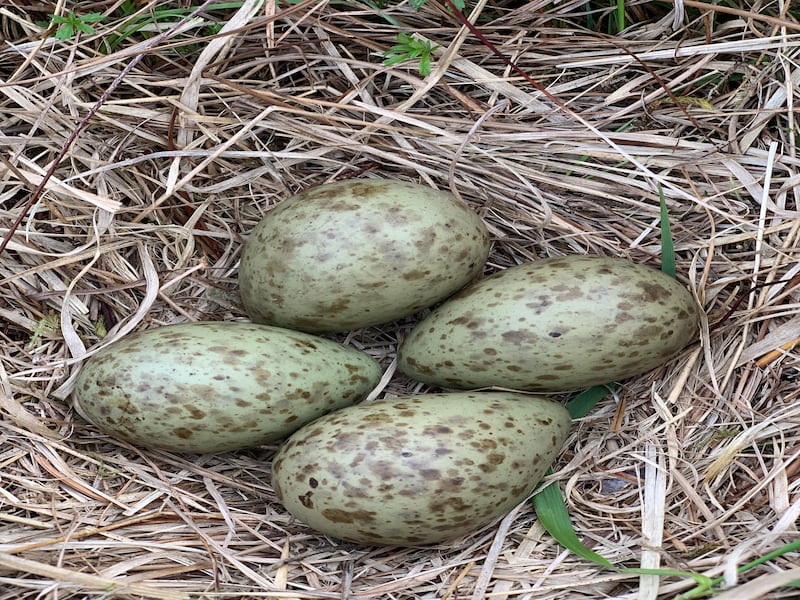A curfew of young curlews have been released back into the wild in Co Armagh after their eggs were rescued from a peatland fire.
The blaze smouldered for weeks across April and May in the peatland habitat next to Lough Neagh with firefighters working around the clock to extinguish the flames in dry conditions.
The team at Lough Neagh Partnership as part of the Saving Nature project said the blaze removed vital nesting habitat for the adult curlews and destroyed essential food supplies for the yet-to-hatch vulnerable ground nesting chicks.
Curlews are one of Northern Ireland’s most endangered species, having declined by 85% since 1985.
Along with partner organisations RSPB NI and the Northern Ireland Environment Agency (NIEA), workers took emergency life-saving steps to save the eggs.
For the first time in Ireland they acquired a licence to remove the fragile eggs from their natural habitat and maximise their chances of survival.
The eggs were placed in an incubator and transported to a secure location for hatching and hand-rearing before being transferred to the RSPB’s Portmore Lough reserve where they were kept in a pen on soft rush pastures, providing ideal feeding habitat for curlews.

They were released back into the wild last week.
Dr William Burke of Lough Neagh Partnership described the project as a “labour of love”.
“These birds are so vulnerable and incubation was crucial for the survival of these chicks,” he said.
“This project became a real labour of love for our project officer Siobhan Thompson who, alongside Dr Kendrew Colhoun, and Kerry Mackie of KRC Ecological, completed the works on behalf of Lough Neagh Partnership.
“Kerry’s experience in incubating eggs and hatching chicks championed an innovative solution in record time to ensure the successful moving of the eggs and he then monitored the hatching of these eggs during some of the most difficult times we have ever experienced.
“The growth of the chicks has been miraculous and we are overjoyed to be able to release them at Portmore Lough RSPB reserve.”

Dr Neil McCulloch, Ornithologist at NIEA, said the decline of the species in Northern Ireland has been particularly severe.
“Curlew have declined catastrophically over the past 30 years and the plight of this iconic species is now recognised as one of the UK’s most urgent conservation issues,” he said.
“The decline has been particularly severe in Northern Ireland, with over 80% of our curlew having been lost.
“One of the main problems has been the poor survival of young birds, and every chick is now precious.
“The Lough Neagh Partnership are therefore to be congratulated for their prompt action in ensuring the survival of these broods and NIEA is delighted to have been able to assist this project.
“We now hope to see these young birds returning to the Lough Neagh area in future years and becoming part of an increasing curlew breeding population.
“The fact that this project was necessary also highlights the danger to wildlife posed by fires in the countryside, most of which are avoidable.”

Dr Colhoun added: “This was a big step for us to take. As conservation scientists, our key job is to work with the local community to gather information on these special birds to help inform their protection.
“It is clear that our love for them is shared by the community and we simply could not be bystanders to the acute threat of burning this season.
“In the wild we have thankfully seen some young birds successfully fledging elsewhere in this area this year and further boosting the Lough Neagh population, albeit by unconventional means.
“The curlew chicks have now been released as they are able to fly and survive independently and it is hoped they will continue to thrive and breed in the Lough Neagh landscape.”







